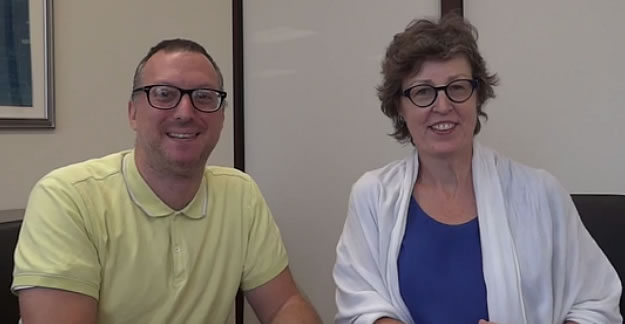Can a 7-year-old give informed consent regarding a prescribed child medications? Su and Jonathan discuss this awkward question.
Su Robotti: Hi, I’m Suzanne Robotti, the founder of MedShadow, and our content manager is Jonathan Block We’re here today to talk to you about informed consent in children.
If you are at the doctor’s office, and your doctor is prescribing antibiotics for your 9-year-old, do you ask your 9-year-old for his or her opinion? Do you ask a 7-year-old if she wanted shots? I don’t know, but the American Academy of Pediatrics is suggesting that, yes, the child should have a role in informed consent.
Informed consent has a long history and a proud history. It’s a recognition by the medical establishment that the patient has a right, and even responsibility, to understand what medical procedure or medical care they are about to receive, and if the patient doesn’t want that care for any reason at all, that is the patient’s decision, not the doctor’s.
Children are different. Should they have a voice, Jonathan?
JB: I think that they should have a voice, but as far as the size of that voice, I think depends on a couple of situations. One is the age of the child. A lot of times you might get a 7-year-old, as what you said, if they wanted to get a shot, they’ll say no because it might hurt, but the benefits of getting a shot are obviously much better for the child. Where I could see informed consent coming into view, and I would support it, would be for adolescents or children that have gone through their lives, if they have had a major medical issue, they are more mature, they have a better understanding of what’s going on with them. And I think that when you’re of a certain age, maybe 12, 13, I think at that point you understand the benefits and risks of a certain medical procedure or child medications, and that you should take a 12- or 13-year-old’s desires and opinions when making health decisions.
SR: Well the American Academy of Pediatrics came out with the statement that says children as young as 7 should have an opinion on their medical care in certain conditions, and my examples earlier were clearly exaggerated. The American Academy of Pediatrics does not suggest a 7-year-old be able to resist taking a tetanus shot. That’s really not a decision that they should get, a thumbs up or thumbs down, a vote on.
But, it did give as an example, medicine for ADHD, and it quoted a study that showed when parents and children were told together about the risks and benefits of ADHD medicine, the children showed as much comprehension as the parents in a quiz a few minutes later.
I’m going to be a wise guy here and say that that kid probably doesn’t need ADHD child medications e in that case, but I’m being a wise guy. And that was an example where the AAP said, yes, the child should have a very significant vote there. Again, does that make sense to you?
JB: Yes, I think that in the situation that you just described, it is important to get, at least input, from the child. Just because a kid who’s 7 years old doesn’t mean that they’re completely absent from the conversation on their medical treatment. I think it’s important to have kids be informed as much as they can understand given their age. And I think it is important for them to understand, even at a young age, why the treatment is being given. And it also can have a longer effect in that if you started out with them understanding why certain medical decisions are made at an early age, it will likely them more likely to be better informed as they get older about health.
SR: Certainly they should understand the ins and the outs. There are a couple of cases where the medical community and, in most cases, the law agrees that the child can make decisions without any input from the parents with the parents not even knowing, and that generally speaking is, healthcare doesn’t do a sexual activity, anything having to do with contraception, sexually transmitted diseases, pregnancy. In most cases, medical communities say you can deal directly with the child without any parental involvement, and also in case of mental illness, or in substance abuse, the child definitely gets the say there.
JB: Well, I think it’s something, it’s also important to note that the American Association of Pediatricians said is that doctors themselves also play a role. Obviously if a kid is old enough and they say they don’t want a particular treatment, it doesn’t mean that the physician just gives up there. It’s actually the responsibility of the physician, both morally and legally to say, “Look, this is the best course of action. This is going to be important for your long-term health.” But of course that creates other difficulties because the reason why the child maybe objecting is because of religious or other kind of reasons. But the point is that doctors still have a role to play in advising children and their guardians, their parents, as to what the best course of action is.
SR: So our advice is read beyond the headlines because many headlines are saying 7-year-old’s now get decisions on medical care, and look carefully. It’s up to the doctor and the parent to involve the child so that they understand their medical care and at the appropriate time can take complete adult care themselves. So, work with your doctor who works with your child and please read MedShadow at medshadow.org.







